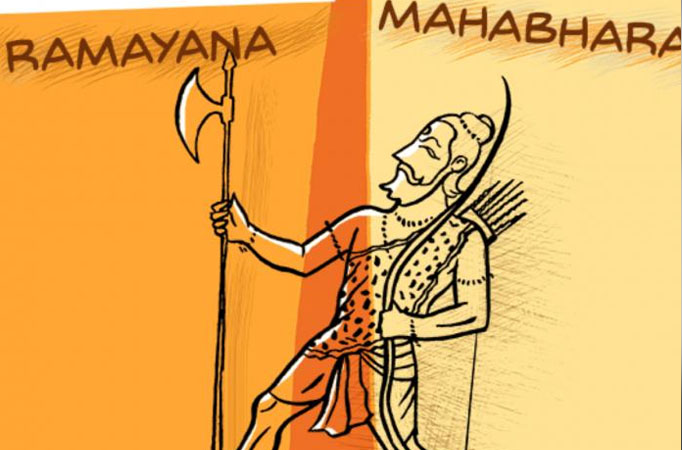
MUMBAI: During this lockdown period, many classic shows have returned to television. The re-telecast of Ramayan and Mahabharat has received an overwhelming response on television with Doordarshan back in the game. While most of us usually tend to see the two as equals, both speaking of the triumph of good over evil, a little bit of research proves otherwise. The two despite being similar in their end goals are different by a large margin. Well, the first and the most apparent difference between them is the time period. While Ramayan dates back to the 5th century BCE, Mahabharat took place much later around 3139 B.C.
Innocence VS Corrupt age: As per references by Devdutt Pattanaik, the two epics exist in two different contexts. While Ramayan comes from a very early innocent age where principles and rules were upheld in parallel, Mahabharat comes from a slightly matured and darker age where seeds of corruption were sown.
Rules Vs Principles: In Valmiki's Ramayan, Ram as the king aligned rules and principles, and most of the time at the cost of oneself. Every decision or step taken was for others. While Ravana had no such alignment. This was a much early innocent era with rules being upheld but never at the cost of principles.
On the other hand, in Mahabharat, while Krishna was the one to bend rules most of the time, his principles were intact. The rules were bent by him but it was always for others. On the other hand, Duryodhan was the one who upheld the rules but violates the principles. He holds the letter of the law, but never the spirit of the law. This was a slightly complex era with corruption and bending of rules to suit oneself. Here the focus is on rules rather than principles.
With these differences, what remains the same in both sagas is the underlying message of 'dharma': Even today, both the mythologies are said to have answers to many of the dilemmas we face in the real world. The knowledge and the learning transcend the barriers of time, gender, age, religion, society, and language. For these were relevant before us and will continue to be relevant after us…and whether we want to learn, is a choice one may make for themself. Perhaps why, half of India is yet again hooked on it on Television.
Credits: Pinkvilla

















Add new comment